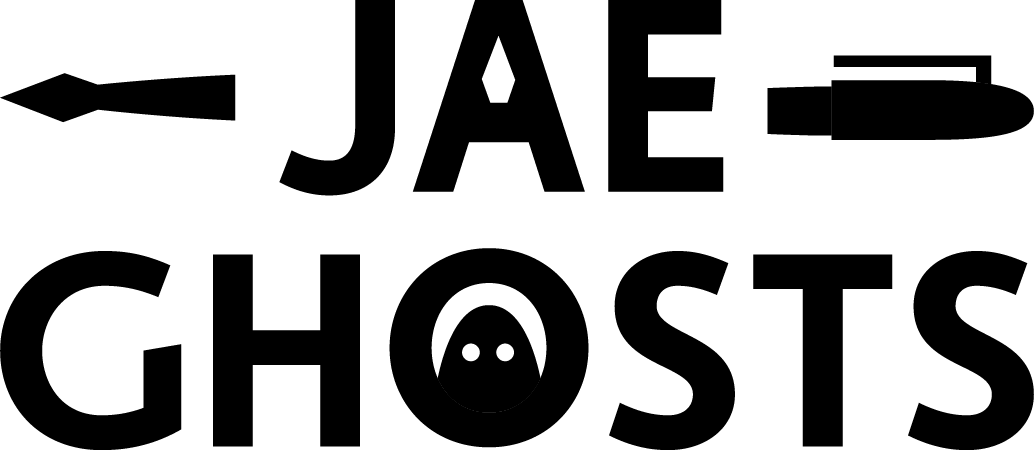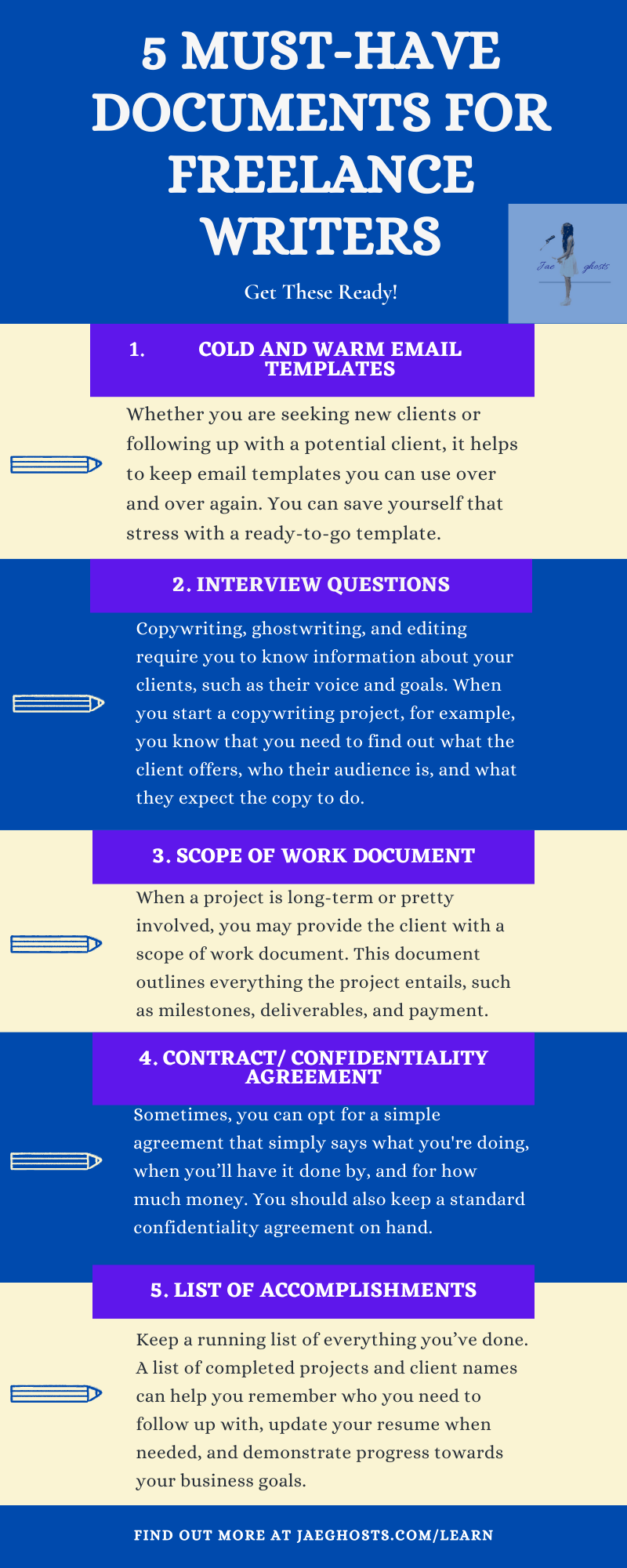Starting a Freelance Writing Business? Get These Documents Ready.
A lesson I learned in my first year of business
When you start a freelance business of any sort, you find out a lot of useful information through trial and error. 2020 was my first year as a full-time freelancer, and one of my hard-learned lessons was that there are certain documents I need to have ready to keep my business running smoothly.
As a one-person business, you can’t afford to waste time starting from scratch with each client. While you should absolutely personalize your services, you also want a business method that you can replicate easily. This way, you can work efficiently and remain consistent across clients and projects.
This past year, I’ve provided ghostwriting, copywriting, and editing services. I use the following documents for those types of jobs, but you are not limited to them, of course.
Cold and warm email templates
Sending emails is a necessary evil of freelancing. Whether you are seeking new clients or following up with a potential client, it helps to keep email templates you can use over and over again. There have been times when someone has expressed interest in my services, and I spent at least ten minutes thinking, “What should I say next that won’t scare them off?”
You can save yourself that stress with a ready-to-go template. When you first start out, you’ll want to try different email templates to see what works best. Hint: if no one ever responds to your emails, you probably need a new approach. Once you find the best ones, save them somewhere for easy retrieval, so you don’t have to keep recreating them.
My cold email template, for example, is:
Hi [name],
I hate to email out of the blue, but I noticed you/your brand on [site]. I am a [writing specialty], and I’d love to write for you if you have any needs! I specialize in writing [this thing], [this thing], and [that thing].
Here’s a link to my portfolio, if interested:
I would love to run a few ideas by you. When would be the best date and time to talk?
Thanks,
[signature]
Interview questions
Copywriting, ghostwriting, and editing require you to know information about your clients, such as their voice and goals. When I start a copywriting project, for example, I know that I need to find out what the client offers, who their audience is, and what they expect the copy to do.
I sent at least three follow-up emails to my first copy client because I kept realizing that I needed more information before I could start the project. (oops)
Instead of trying to remember everything I need on the spot, I now keep a running list of basic questions I want to ask when I get the person on the phone. Some of my copy-related questions include:
What are you looking for from a copywriter?
What is the #1 thing you want people to do when they visit your site?
Who is your target audience?
What is your core offer? Can you describe the product or explain the process to me?
What sort of tone and brand image do you wish to project?
Ask yourself what you’ll need to know to do the project to the best of your ability before getting on the phone with a potential client.
Scope of work
When a project is long-term or pretty involved, I may provide the client with a scope of work document. This document outlines everything the project entails, such as milestones, deliverables, and payment.
I use these mostly for my ghostwriting services — since no one knows what a ghostwriter does — but it’s worth it to develop a document that outlines any of your services. Why? You want to minimize what I like to call, “Oh, can you…?”
This question happens when you’ve nearly completed a project, and the client goes, “Oh, can you also do XYZ real quick?” Then, before you know it, you’ve done way more work than you originally planned. A scope of work document reduces confusion (or convenient amnesia) about your role in a specific project. If a client needs more services than you originally agreed to execute, they should pay you accordingly.
Additionally, you can have a scope of work document that you keep to yourself. Do you know what you do? Do you know all the steps involved in getting it done? Brainstorming one just for yourself allows you to work out the kinks of your process (and figure out what you are actually capable of) before it’s time to put it into practice.
Contract/ confidentiality agreement
If I provide a scope of work, then I’ll often just have the client sign that. Sometimes, I opt for a more generalized agreement that simply says what I’m doing, when I’ll have it done by, and for how much money. If I need a confidentiality agreement, I’ll throw that in as well.
I cannot stress the importance of a written agreement. I’ve been burned multiple times this year by someone who waited until the work was complete to say, “Didn’t I also ask for__?” or “I thought we agreed on a different rate, no?”
A written agreement doesn’t have to be fancy or formal. If you spoke on the phone about the project, then sending a follow-up email to confirm all of the details is often good enough. Just make sure you include ALL of the pertinent information.
List of accomplishments
Finally, freelancing can mean that you work on multiple projects at once or do over 30 different things in any given year. It’s hard to keep track of all of that in your head, so you should keep a running list of everything you’ve done. A list of completed projects and client names can help you:
remember who you need to follow up with
update your resume when needed
find new skills to list on your website
demonstrate progress towards your business goals
Also, if someone asks for work samples, you can pull them from projects you’ve done instead of trying to write new ones.
As a freelancer, you are the marketer, manager, and talent. It’s crucial to make the business side of things flow as smoothly as possible so that you can focus on what you do best, which is writing. Aside from the contract, I didn’t think of any of these documents before I started freelance writing, and I paid the price. Hopefully, as we head into 2021, you can start off on a better foot than I did.


